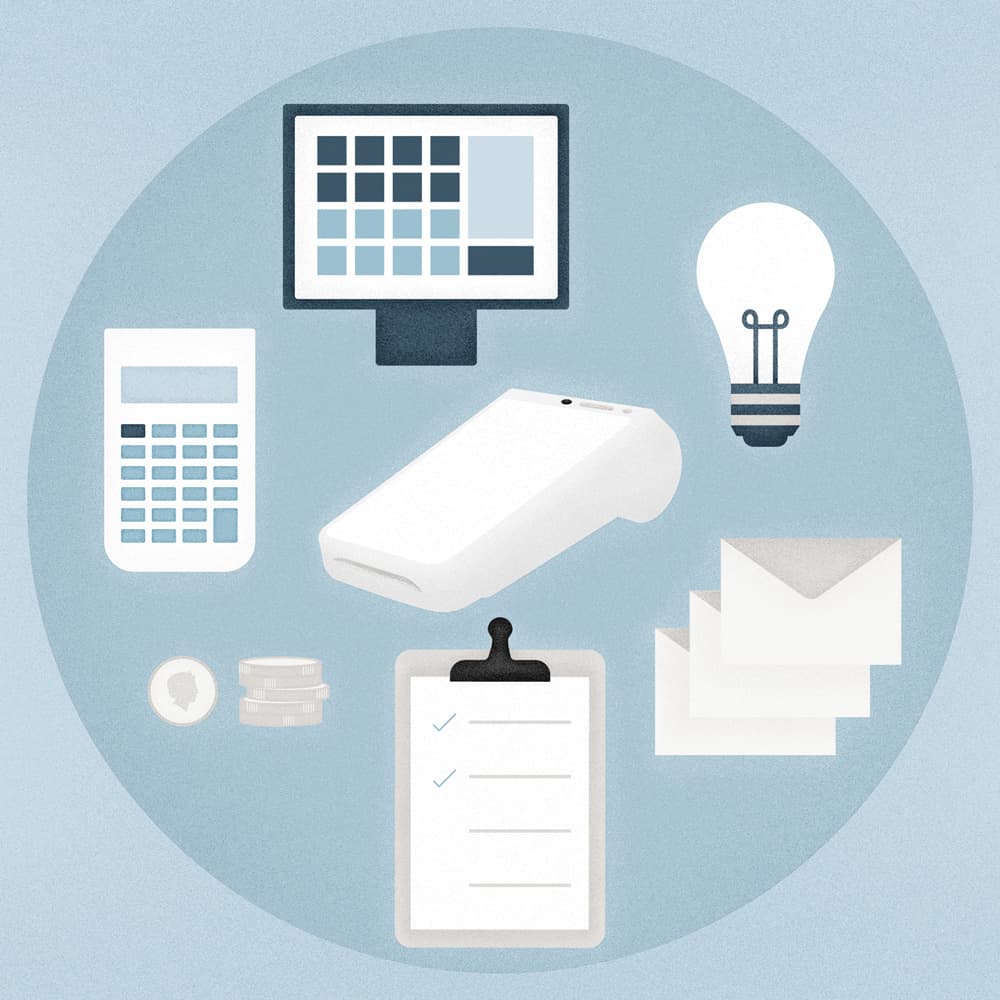
- Business Growth & Optimisation
How to Find an Accountant For Your Small Business
An accountant is an invaluable asset for your small business.
As a business owner, maximising your tax offsets (and paying the right amount of tax) is vital. That’s why it’s important you find a good tax accountant early on — otherwise, you could end up paying more tax than you have to, or not enough.
An accountant is a professional who takes care of your business’s bookkeeping and prepares important financial documents such as balance sheets, profit-and-loss statements, and more. However, the best accountants don’t just crunch the numbers — they add value to your business. An accountant can give you strategic advice and think of out-of-the-box ways to save your business money, and grow profits. You just need to choose the right one.
The difference between bookkeeping and accounting
When choosing an expert to be involved with your business’s financials, you need to ensure you are clear on your growth goals. Some business owners choose to engage a bookkeeper instead of a registered accountant, often to save money. However, there are some important differences to be aware of.
Bookkeepers record the day-to-day financials of the business — payroll, invoicing, and transaction records, for example. Accountants, on the other hand, are more focused on budgeting, forecasting, running financial reports and statements, and working on your business’s tax returns. As a business owner, having an accountant as part of your team is imperative for the long-term success and growth of your business.
Finding an accountant for your small business
Step 1: Create a shortlist
With so many accountants available, it’s important to research your options. You’ll want to find an accountant who understands your business, the type of products and services you offer, and who will be able to help with your growth strategy. You should also consider a few factors such as location, workload, type of accounting software, fees, and their reputation in growing other businesses.
These days, location is not as important as it once was. Virtual meetings and cloud-based accounting software have made it easier for both accountants and their clients to view real-time data, eliminating the need for you or your accountant to be located in close proximity. This is great news for small business owners: if your accountant can be located anywhere in the world, then you can find one that understands the mechanics of your business.
Once you have a rough idea about the type of accountant and accounting services your small business requires, the next step is to compile a shortlist of accountants that will fit your business’s needs. Consider asking your network for recommendations, and spend some time searching online. There are various online directories you can search including:
It may be a tedious task, however it’s an important one to ensure your business thrives.
Step 2: Interview your options
Now that you have your shortlist, it’s time to contact each option and learn more about how they run their business. There are four key considerations in determining which accountant is the best fit for your business’s requirements.
1. Experience and specialisation
Do they have experience in dealing with similar businesses to yours? Find out what type of clients they’ve dealt with in the past; the size of the businesses, any industry-specific software they’ve used, and how they’ve helped other businesses grow.
The more familiar the accountant is with the ins and outs of your industry, the better for your business. An accountant with a good understanding of the intricacies of your business will be able to make recommendations that are align with your business strategy.
2. Communication style
While not technically part of your staff, your accountant will be a key team player in your business. Yet in order for your business to benefit from their expertise, the lines of communication must be open. The success with which you and your accountant communicate will be a big factor in the success of your partnership.
As Albert Einstein said, “The hardest thing in the world to understand is the income tax.” If you agree with this sentiment, you’re in good company. The accountant you choose needs to be able to cut through financial jargon and explain difficult concepts clearly and concisely, as well as respond to your calls and emails in a timely fashion.
Think about how you will communicate with your accountant. You might consider granting them secure third party access to your Xero organisation, and making use of Zeller's integration with Xero Bank Feeds, for example.
It’s also important to consider who would step in if they were to go on holiday, or fall ill; do they have a team of professionals who would be able to assist you? Communication is a vital part of running your business, so set your expectations from the very beginning.
3. Proactivity
The best accountant for your business will do more than simply lodge a tax return and manage your business accounts. They be will be proactive, helping you to identify quick wins as well as plan longer-time cost-saving initiatives.
So, how do you find the best accountant for your business? It’s simple. Ask them what they would suggest to save your business money. Their response will allow you to gain an idea of just how much work they are willing to put in.
“The worst accountant to have is the one who just says 'yes', 'no', and 'it depends'. The accountant you want is the one who asks open questions: who, what, when, where, how, why. A good accountant will enquire about the type of work you do, and make smart suggestions based on that,” says Duncan Perkins, owner of Tax Time.
However, in order for your accountant to be proactive, they must be kept informed of important business decisions and aware of plans for future growth. This is where many small business owners miss out.
“A lot of people see their accountant as a machine to get a task they hate out of the way,” says Duncan. “They’re scared to ask questions, because if they do they think it’s going to cost them a couple of hundred dollars to resolve something that may only save them a very small amount. But a good accountant will help you stop focussing on the little things, like $10 deductions, and start looking at the bigger picture — so they become more of an advisor.”
4. Cost
Find out what additional costs are associated with the services provided. You’ll want to know upfront what the expense will be to your business, and if payment plans are available. Ask what’s included in the accountant’s fee and what’s considered an additional cost.
Keep in mind that, whilst accountants can take care of the entire financial side of your business (including bookkeeping), this might not be the best approach for you. As most accountants charge by the hour, you’ll likely want to maximise the time you’re paying for instead of paying for simple tasks such as bookkeeping and paying invoices. For that, you could engage a bookkeeper or find accounting software that will simplify tasks like invoicing by sending automatic invoices and recording their contents. If you handle the simpler tasks, it will allow your accountant to deal with the more complicated tasks like forecasting, bank account reconciliation, lodging tax return forms, payroll, and capital depreciation calculations.
Your accountant will be intimately involved with the operations of your business, so finding the right person for the job is important. When it comes to finding a good tax accountant, you’ll need someone trustworthy, that has experience with similar businesses and has clear and concise communication with their clients. Remember, you and your accountant operate as a team. The accountant you choose should help your business grow, offer sound advice on business issues, and save you money both in the long and short term.



